Sustainable Microfinance - Balanced Scorecard's added value for ...
Sustainable Microfinance - Balanced Scorecard's added value for ...
Sustainable Microfinance - Balanced Scorecard's added value for ...
You also want an ePaper? Increase the reach of your titles
YUMPU automatically turns print PDFs into web optimized ePapers that Google loves.
2.5.6 Success of BDS<br />
Lämmermann, et al. (2007) argue that in Europe, a wide range of <strong>for</strong>mal business<br />
service providers <strong>for</strong> micro- and small enterprises exists. This includes the Chambers<br />
of Commerce as well as public and semi-public business support agencies. Private,<br />
self-sustaining agencies <strong>for</strong> support services to micro- and small enterprises are<br />
much less common though. There are certainly many individual enterprises that can<br />
testify that assistance from support organisations has made a crucial difference to<br />
their business per<strong>for</strong>mance at significant points in their development. Assessment of<br />
the impact of such services on general economic per<strong>for</strong>mance at a more aggregate<br />
level is rather more difficult. There is evidence, presented in the Global<br />
Competitiveness Report (Porter et al., 2002), that factors influencing the quality of the<br />
business environment can have a greater impact on per<strong>for</strong>mance than is generally<br />
appreciated. Differences in the availability of business in<strong>for</strong>mation between countries,<br />
<strong>for</strong> instance, are strongly associated with variations in per capita income (European<br />
Commission, 2001).<br />
2.5.7 BDS Criticism<br />
There is also criticism on the current policies. Shane (2009) states that policy makers<br />
often think that creating more start-up companies will trans<strong>for</strong>m depressed economic<br />
regions, generate innovation, and create jobs. Shane argues that this view is flawed<br />
because he believes that the typical start-up is not innovative, creates few jobs, and<br />
generates little wealth. The vast majority of people founding new businesses aren’t<br />
entrepreneurs in the sense of people building companies that grow, generating both<br />
jobs and wealth. Rather, they are founding wage-substitution businesses that have<br />
more in common with self-employment than with the creation of high growth<br />
companies. According to Shane getting economic growth and jobs creation from<br />
entrepreneurs is not a numbers game. It is about encouraging the <strong>for</strong>mation of high<br />
quality, high growth companies. Shane believes that policy makers should stop<br />
subsidizing the <strong>for</strong>mation of the typical start-up and focus on the subset of<br />
businesses with growth potential. He states; ‘while government officials will not be<br />
able to, [similar to venture capitalists] ‘pick winners,’ they can identify start-ups with a<br />
low probability of generating jobs and enhancing economic growth. By eliminating<br />
incentives to create these low probability companies, policy makers can improve the<br />
average per<strong>for</strong>mance of new businesses’.<br />
Elmar Hoogendoorn 26<br />
<strong>Sustainable</strong> <strong>Microfinance</strong>


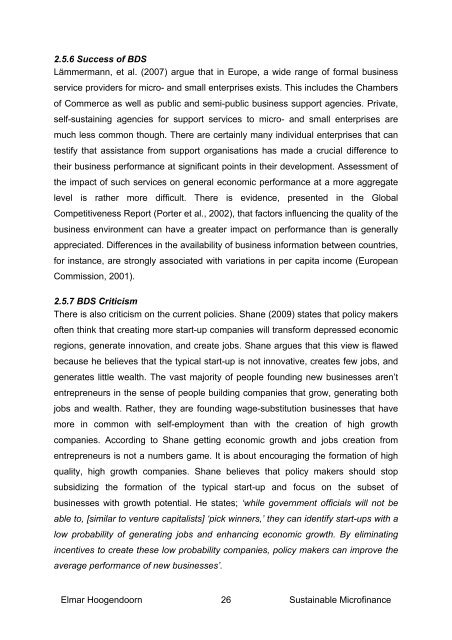
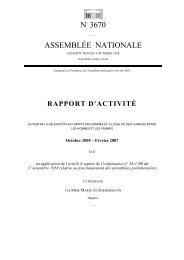


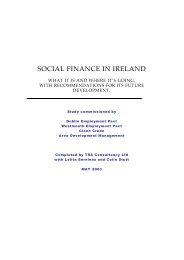





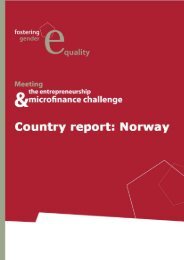

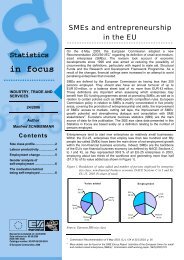
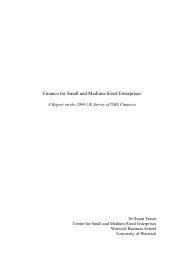
![Joint Report on Social Protection and Social Inclusion [2005]](https://img.yumpu.com/19580638/1/190x132/joint-report-on-social-protection-and-social-inclusion-2005.jpg?quality=85)
